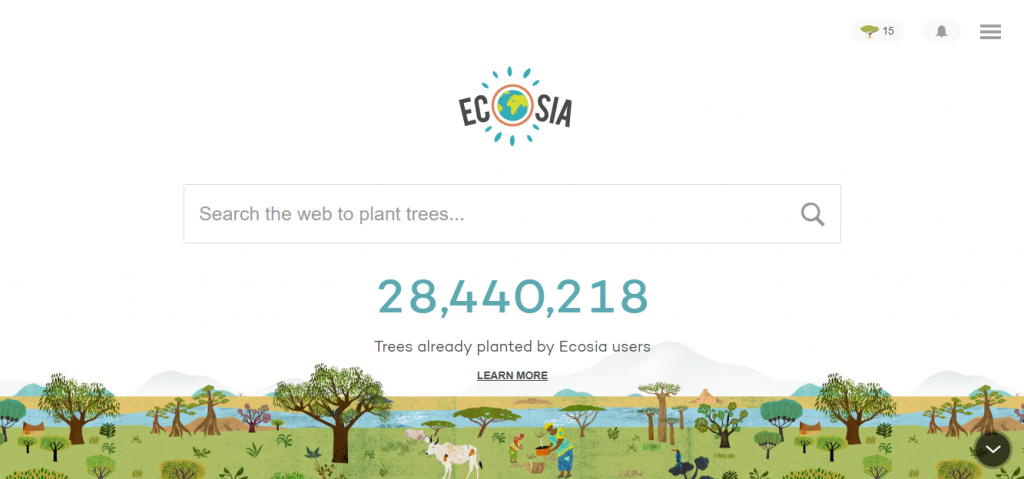
In my recent research for alternatives to Google[1] here at Search Engine Watch, Ecosia[2] was one search engine that caught my eye.
The eco-friendly choice for search certainly seems to serve a purpose. We might forget it, but there is an environmental cost to our digital activities – including Googling.
So let’s dig a little deeper. Should we be more mindful of the effect our search queries are having on the environment and is Ecosia a viable alternative in a world where Google commands more than 90% of market share?
What is Ecosia?
Launched in 2009, Ecosia is a CO2-neutral search engine. With every search made, the social business uses the revenue generated to go towards its tree-planting scheme.
On average, 45 searches are needed to plant a single tree. Users can keep a tally of the number of searches they make thanks to a handy counter in the top corner of the Ecosia homepage.
Another ticker underneath the search bar boasts the collective number of trees planted by all Ecosia users, currently standing over 29 million trees.
Is Googling bad for the environment?
As more of our computing moves into the cloud, users are becoming increasingly aware of the environmental impact of day-to-day digital activities.
Journalists, artists and researchers are facilitating this awareness. Joana Moll is one such artist and researcher and created an online visualization CO2GLE[3] shows the real-time amount of CO2 produced by the search giant.
The notion that search has an impact on the environment is not particularly surprising. But performing a search is such a quick and simple task that we don’t turn our



